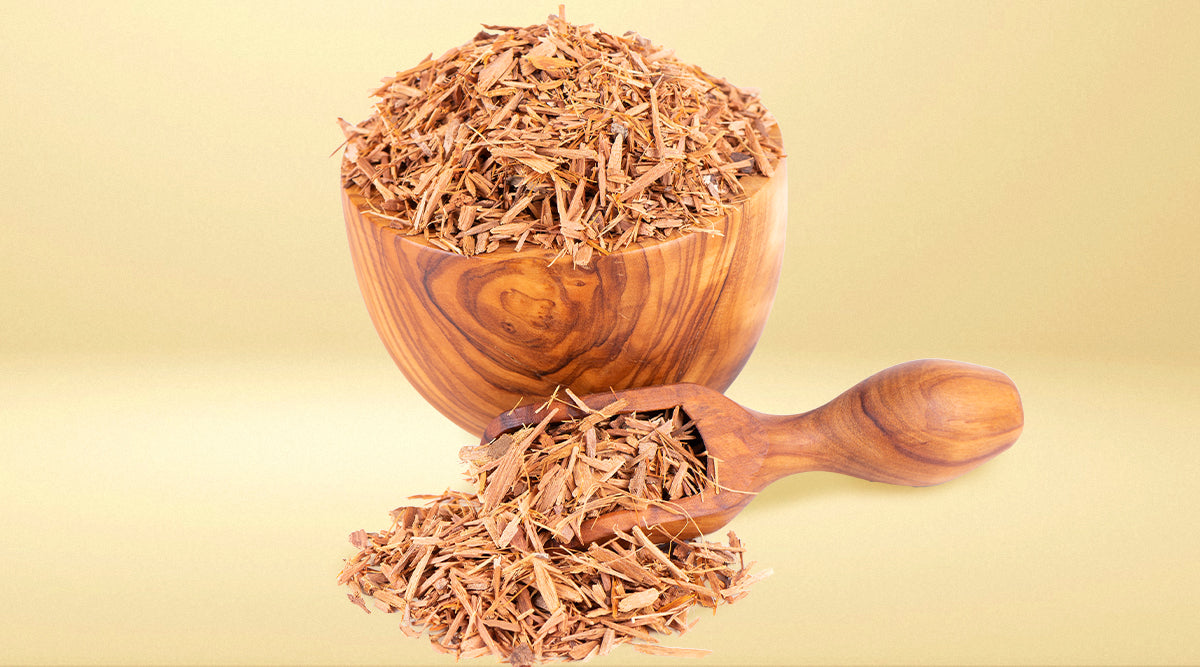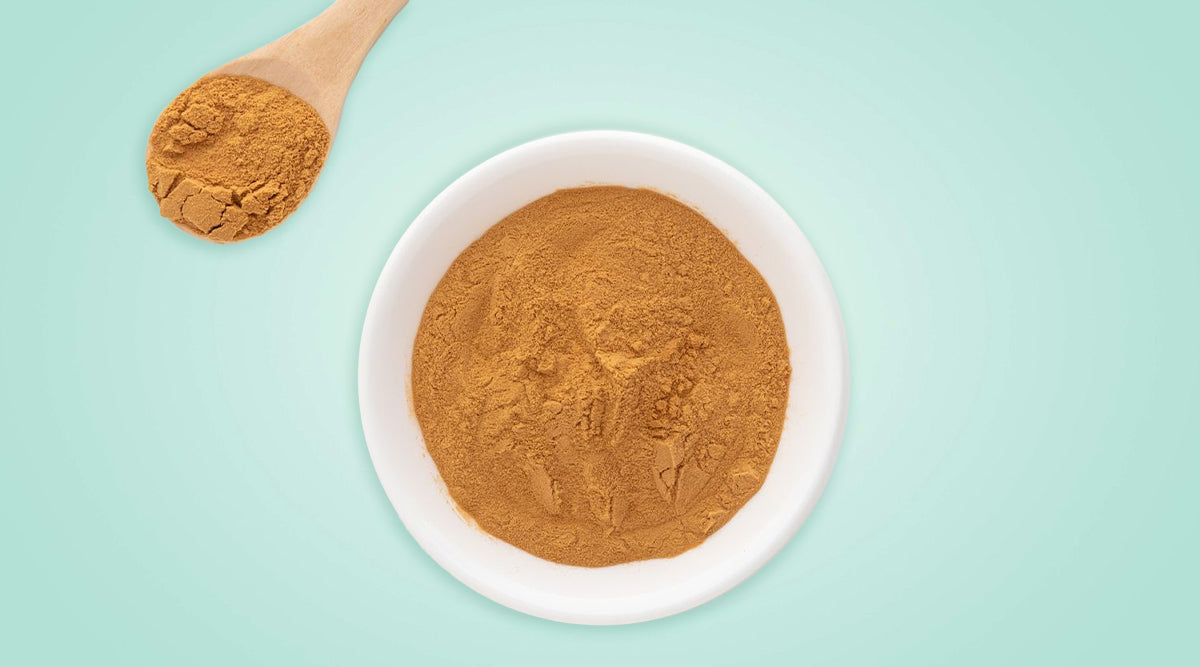How It Works Mobile
Health Benefits Mobile

Side Effects of Catuaba
Side Effects of Catuaba
4 min read
4 min read
Curious about Catuaba’s side effects? While generally safe, some users have reported mild digestive discomfort or headaches, typically when consumed in high doses or improperly.

Science-based guidance to improve your sexual health & performance.
By The Private Gym Team
Catuaba has gained attention as a natural remedy with a long history of use in traditional medicine. It is known for its ability to boost energy, improve mental clarity, and enhance sexual health, making it a popular choice for those seeking herbal supplements. Additionally, Catuaba is known for its antioxidant properties, which help combat oxidative stress and protect cells from damage. But what about its side effects?
There isn’t much scientific research on Catuaba’s potential adverse effects. Most of what we know comes from anecdotal evidence and its long-standing use in traditional medicine. While this suggests it’s generally safe for most people, it’s essential to approach any supplement with care. Let’s explore what we know about Catuaba’s safety, potential side effects, and how to use it responsibly.
What Is Trichilia Catigua (Catuaba)?

Catuaba is derived from the bark of trees native to the Amazon rainforest. Used for centuries in Brazilian medicine, it is traditionally valued for treating fatigue, enhancing sexual performance, and promoting overall wellness. The bark contains active compounds such as alkaloids, tannins, and flavonoids, believed to contribute to its health benefits.
Catuaba is available in teas, powders, capsules, and liquid extracts. While its long history of use points to its safety, understanding its potential risks remains crucial.
Preliminary studies suggest that crude Catuaba extract may offer neuroprotective and antidepressant-like effects, making it a promising natural remedy for mental health and vitality.
Common Side Effects of Catuaba Extract

Understanding Catuaba’s side effects, especially those related to long-term use, is challenging due to the limited number of detailed scientific studies. Most side effects are anecdotal and mild. Future research is needed to provide a more comprehensive understanding of Catuaba's side effects and long-term safety.
Reported Side Effects Include:
- Digestive discomfort: Occasional nausea or upset stomach, especially when taken on an empty stomach or in high doses.
- Headaches or dizziness: Rarely reported but noted by some users.
- Impaired fertility in women: Some studies suggest Catuaba may impair implantation, potentially affecting fertility.
While these effects are uncommon and typically mild, using Catuaba responsibly to minimize risks is essential.
Why Don’t We Know More? Further Research is Underway.
Catuaba’s safety profile is under-researched. This doesn’t necessarily mean it’s unsafe—it simply highlights the need for more comprehensive studies. The evidence from traditional use and anecdotal reports suggests it’s a relatively safe supplement when used as directed. Future research is essential to validate these findings and ensure the safety of Catuaba for long-term use.
Dosage: How Much Catuaba Should I Take?

The best way to minimize side effects is to use Catuaba in the correct amounts. Although there’s no universally agreed-upon dosage, most supplements recommend starting with 400–600 mg daily. As with many dietary supplements, it is crucial to choose products reviewed by third-party testing agencies to ensure quality and safety.
Guidelines for Safe Use:
- Start low and go slow: Begin with the lowest recommended dose to gauge your body’s response.
- Follow product instructions: Reputable brands provide clear dosing guidelines for safe and effective use.
- Avoid exceeding the recommended dose: Overuse can increase the likelihood of side effects.
Always consult a healthcare provider before starting new supplements, especially if you have existing health concerns.
Who Should Avoid Catuaba?

While Catuaba is generally safe, certain groups should use caution or avoid it altogether:
Additionally, individuals with pre-existing neurological conditions should consult a healthcare provider, as Catuaba's impact on brain health is still being studied.
Pregnant or Breastfeeding Individuals:
A 2015 study published in the Journal of Ethnopharmacology found that Catuaba extract impaired implantation in female rats, raising concerns about its safety during pregnancy. Although human studies are lacking, pregnant or breastfeeding individuals are advised to avoid Catuaba as a precaution.
People with Allergies:
Individuals allergic to related plants or tree bark may experience reactions. Consult a healthcare provider if you have a history of plant-based allergies.
Those on Medications:
Catuaba may interact with medications, particularly those affecting the nervous system or blood pressure. If you’re taking prescription drugs, consult your doctor before using Catuaba.
Individuals with Pre-Existing Conditions:
People with chronic illnesses, such as heart disease or liver conditions, should use Catuaba only under medical supervision to avoid potential complications.
How to Minimize the Risk of Side Effects

Follow these tips to enjoy the benefits of Catuaba while reducing the risk of side effects:
- Choose high-quality Catuaba supplements: Opt for trusted brands that prioritize ingredient quality and transparency. Look for products tested by reputable third-party organizations.
- Stick to recommended doses: Avoid taking more than recommended, even if you’re eager for faster results.
- Avoid combining supplements: Mixing Catuaba with other stimulants, sedatives, or herbal remedies may increase the risk of side effects.
- Monitor your body’s response: Pay attention to how you feel after taking Catuaba and adjust your dose if needed.
- Consult a healthcare professional: Seek medical advice if you have concerns or pre-existing conditions.
Is Catuaba Safe? A Balanced Perspective
Catuaba’s long history in traditional medicine suggests it is a safe and effective supplement for most people. Mild side effects, such as digestive discomfort or headaches, are rare and usually occur with improper use or high doses.
While the lack of extensive research means there is still much to learn about Catuaba, traditional use and anecdotal evidence support its safety when used responsibly. Future research will be crucial in providing more definitive evidence on Catuaba's long-term safety and efficacy. To maximize its benefits, start with a low dose, choose reputable products, and consult a healthcare provider if you have concerns.
When taken thoughtfully, Catuaba can be a valuable addition to your wellness routine. It offers natural support for energy, focus, and vitality.
RELATED ARTICLES

Health Benefits of Catuaba
6 min read
Recent Articles
- 12 Types of Female Orgasms: How to Help Her Experience Each One
- Why I Recommend You Get a Tantric Couch
- The Downsides of Penis Enlargement Surgery: Risks and Alternatives
- Bathmate vs. Air Pumps
- Bathmate Results: Penis Pump Before & After
- Side Effects of Catuaba
- Health Benefits of Catuaba
- 12 Essential Tips for a Healthy Penis
- Can Quadriplegic Men Have Sex?
- Sexual Function for Men After Spinal Cord Injury
































